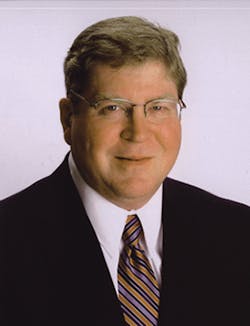There was a time when Carrier Corp. would host energy efficiency conferences to which it would invite all of the major trade, housing and shelter magazines. That was when Rick Fedrizzi was still at Carrier. In fact, the U.S. Green Building Council was formed out of a discussion at one of the events at Lake Tahoe.
Carrier would invite speakers such as Amory Lovins of the Rocky Mountain Institute, who would advocate that we should design buildings without air conditioning, which I thought was a pretty gutsy move for an air conditioning company. I have no doubt that Mr. Lovins would still advocate building buildings without air conditioning, and we’re moving closer with net zero energy buildings. But air conditioning is never going to go away in Dubai or Singapore or New Orleans.
Hundreds of people are dying right now from heat waves in central Asia who could be saved with air conditioning.
I spent a couple days reading Laudato Si, the encyclical of Pope Francis on the environment. I thought it was remarkable that Pope Francis quoted his predecessors, Benedict XVI and John Paul II, as well as the Eastern Orthodox leader Patriarch Bartholomew I, who have written many of the same things about the global environment as Pope Francis without causing the same kind of uproar as Laudato Si.
The Pope notes the efficacy of global agreements: “A global consensus is essential for confronting the deeper problems, which cannot be resolved by unilateral actions on the part of individual countries. Such a consensus could lead, for example, to planning a sustainable and diversified agriculture, developing renewable and less polluting forms of energy, encouraging a more efficient use of energy, promoting a better management of marine and forest resources, and ensuring universal access to drinking water.”
Among successful global agreements, he mentions the Basel Convention on hazardous wastes, with its system of reporting, standards and controls; the binding Convention on international trade in endangered species of wild fauna and flora; and then he gives a shout-out to our own industry for the phase-out of CFCs, HCFCs and HFCs via the Montreal Protocol and the Vienna Convention for the protection of the ozone layer.
Where I specifically disagree with him is where he says: “People may well have a growing ecological sensitivity but it has not succeeded in changing their harmful habits of consumption which, rather than decreasing, appear to be growing all the more. A simple example is the increasing use and power of air conditioning. The markets, which immediately benefit from sales, stimulate ever-greater demand. An outsider looking at our world would be amazed at such [behavior], which at times appears self-destructive.”
That misses the point of air conditioning entirely, as it has existed from the time of Willis Carrier. Air conditioning does not exist for its own sake or to merely allow us to sit around in the lobby bar at the Four Seasons. Air conditioning exists as a service for something else, the same way Carrier applied his invention to a printing plant.
Would you want to perform or undergo surgery without air conditioning? Hundreds of people are dying right now from heat waves in central Asia who could be saved with air conditioning. Air conditioning increases productivity and filters out insects, particulate matter and allergens. Let’s not forget that the same vapor compression cycle has made refrigeration possible, saving millions from starvation.
You could have a philosophical debate about the alienating and isolating nature of the digital age, but that digital age would be impossible without air conditioning. It’s July and you may well be sitting in your truck at lunchtime with the AC running, reading this on your phone or tablet.
No, air conditioning does not exist because manufacturers want to sell more air conditioning. It exists because it serves humanity.
